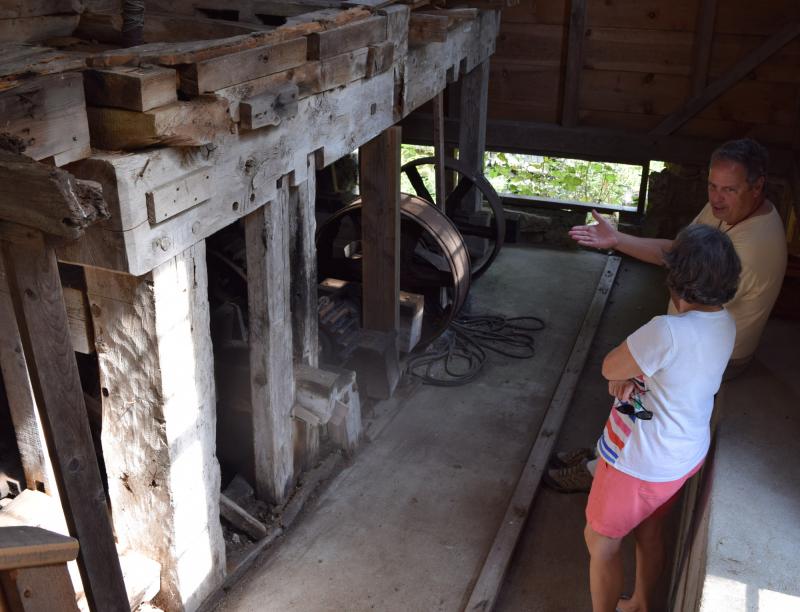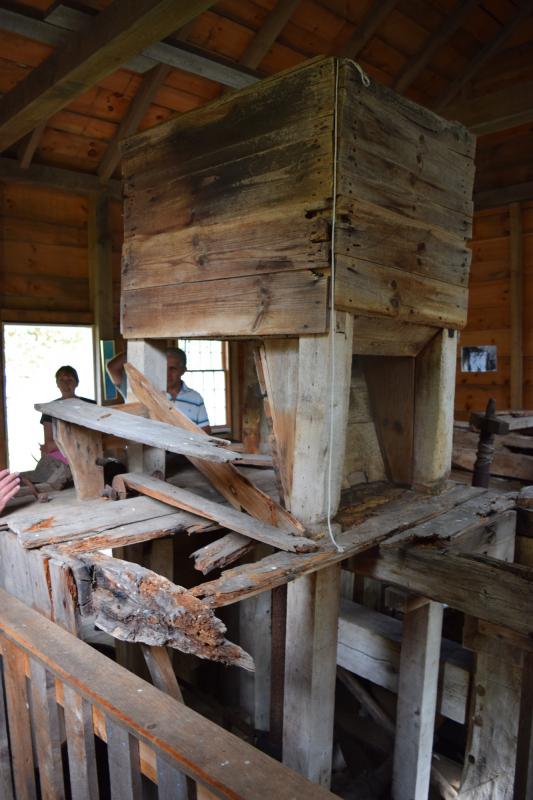DNRT uncovers the history of Allen's Mill
Burney Gifford stood in front of an intricate weaving of metal and wooden gears inside Allen's Mill. Gifford pointed to each gear and stone and explained to a crowd of five guests how the 300-year-old system used to convert fresh corn into fine cornmeal.
The mill is known to have existed since at least 1711, said Gifford at the Allen’s Mill open house on September 10, but it is believed that the property had been in use before then. At the time, it was owned by Jonathan Ricketson, but changed owners several times before it was purchased by James Allen II in 1876. As the mill reached peak operation, it helped establish and develop the Russells Mills area.
“It really developed the whole community here,” Gifford said. “Russells Mills was the first industrial center. New Bedford didn’t take off until whaling.”
Throughout the mill’s duration, new advances in technology were constantly implemented, Gifford said. The mill originally drew its power from a wheel running off of artificially created ponds, but turbines were later installed to generate more power. In the 1900s, gasoline-powered generators were installed.
The mill and a sawmill that operated on the property suffered significant damage in a 1939 fire. The mill shut down in 1953 when the site was abandoned and left to deteriorate. In 2000, the Dartmouth Natural Resources Trust acquired the mill along with Destruction Brook Woods. A majority of the original mill machinery had survived, so DNRT restored the mill building around it.
Despite extensively research into Allen’s Mill–(it was one of more than 25 mills that operated in Dartmouth at one point)–new information is always coming to light.
“Earlier records don’t exist in Dartmouth,” Gifford said. “It’s a constant problem around here. Seventeenth century records are rare. Usually we find only court records.”
As an example of the ever-changing background of the mill, Gifford pointed to his most recent discovery: meeting minutes from a town board meeting in 1696. One of the topics discussed at the meeting was where to place notifications of future town meetings, and one of the locations listed included the Ricketson mill, which may refer to either Allen’s Mill or a second mill Ricketson owned at the time.
The discovery is significant, Gifford explained, because currently the earliest mention of Allen’s Mill was in 1711, which is even referenced to on signs posted outside the mill. He is currently working to verify that the document was indeed referring to Allen's Mill.
The mill was open for tours to coincide with the Grange Fair at the Dartmouth Grange (1133 Fisher Road), also in the Russells Mills Village.
















